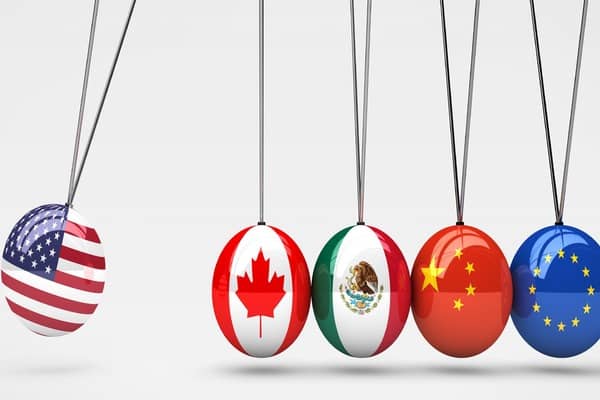Canada, as a middle power, finds itself navigating complex geopolitical dynamics among major global players like China, the European Union, and the United States. This often places Canada in a defensive or reactive stance. The Meng Wanzhou-two-Michaels affair exemplifies this, illustrating how Canada was caught between China and the U.S. Similarly, Canadian governments have had to allocate substantial subsidies to bolster the manufacturing of electric vehicles and batteries, responding to competitive policies from the EU and the U.S. aimed at countering Chinese imports and protecting Canada’s auto sector.
Unlike Indo-Pacific middle powers such as Australia, Japan, or South Korea, Canada cannot effectively leverage China’s influence to sway U.S. perspectives. For instance, Canada’s 2016-2017 efforts to negotiate a trade agreement with China did little to mitigate the Trump administration’s hardline stance during the renegotiation of the North American Free Trade Agreement (NAFTA). This situation underscores a new reality that Canada must navigate.
Canada’s central economic policy challenge remains consistent since the 1970s: managing the heavy reliance on the U.S. economy. This dependency mirrors the situations of other middle powers like Mexico and the United Kingdom, which also face significant economic ties to larger economies. Despite Brexit, the UK’s trade with EU countries still constituted 53% in 2023, reflecting its enduring economic connections.
As global focus increasingly shifts to the Indo-Pacific region, Canada risks diminishing strategic importance to the U.S. The traditional role of Canada as a trusted partner in North Atlantic affairs contrasts with the contemporary emphasis on Pacific trade. Canada’s exclusion from U.S.-EU Trade and Technology Council and the U.S.-led Indo-Pacific Economic Framework highlights its waning strategic value, despite Canadian efforts to join these initiatives.
Additionally, as protectionist policies outnumber liberalizing ones, Canada’s negotiation leverage with the U.S. is likely to diminish, leading to a potential “take-it-or-leave-it” approach from Washington. However, Canada is not isolated; maintaining a free and open global economy is also a priority for other middle powers. To leverage these partnerships effectively, Canada must offer something valuable, such as a three-pillar geopolitical strategy focused on ideas and information rather than economic or military power.



